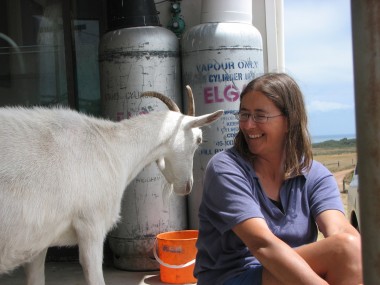“I’d never really stood up for anything before. I’m actually intrinsically very shy but I started to speak with some of the mothers. I sat down with the parents and said, ‘Please tell me how I can help.’ Dr Catherine Crock.
If you’ve ever experienced self-doubt or fear of public speaking, you need to hear the exceptional Dr. Catherine Crock’s story.
Throughout school and even at university she was so shy she couldn’t raise her hand in class or lectures to answer a question. Despite this her fine intellect and commitment ensured she became a doctor in charge of a day-operating theatre at Melbourne’s Royal Children’s Hospital.
It was at the Children’s that her life changed course. After witnessing the intense pain and fear sick children had to endure, her own maternal instincts; it overpowered the shy girl within.
This mother of five became a pioneer for massive changes within the Australian hospital system, she has raised more than 850,000 to help children, winning well deserved accolades and the respect of many families for her good work.
Martine Harte: Cath, take us back to when you first decided pain management needed to be addressed? Was there a defining moment when you realised you needed to take the matter into your own hands?
Dr.Catherine Crock: Yes, there was a defining moment. I’d look at the children who were getting distressed while they were having procedures and they weren’t getting pain management and I thought, what if this were one of my children? And from that moment I couldn’t really stand it anymore.
I thought, I’ve got to do something about this. Now I’d never really stood up for anything before. I’m actually intrinsically very shy but I started to speak with some of the mothers. I sat down with the parents and said, ‘Please tell me how I can help.’ I have some dear, anaesthetist colleagues and spoke to them about what was possible. It was actually pretty simple from that stage on. They just made it happen.
MH: Did you find that once the decision is made it seems you get into the flow of making a change? Things conspire to make it happen?
Dr.C: Yes I think that’s probably true. It just became obvious and inevitable and it took on a momentum of its own. And then people all started talking about it and they not only started addressing it in my area, where children were having bone marrow procedures and lumbar punctures for their cancer treatment, but it started happening in other treatment rooms and other procedure rooms.
The parents were then part of the drivers to making things change and they also helped to raise some of the money that led to the first pain management role, a nursing role at the Royal Children’s Hospital in Melbourne.
MH: So Cath the first thing you sorted at the Royal Children’s Hospital was pain management?
Dr.C: We got the children off to sleep for most of their procedures and we could cluster lots of different things under the one anaesthetic: nasal gastric tubes, put in lots of different needles, do their immunisations, their bone marrow, lumbar puncture and they’re in recovery within fifteen minutes. That revolutionised their experience.
MH: What then?
DR.C: Then the families started talking about the environment at the hospital. It’s really quite stressful and foreign and quite challenging for families. We get used to it as health professionals. We come into work each day and we think this stuff looks normal but for families who have had no experience before, it’s really quite frightening.
MH: And that’s when the idea to convince classical and jazz music composers to create soothing music for waiting rooms and operating theatres was born. The HUSH CD’s have now made more than 850,000 dollars for research. The project is linked to 12 children’s hospitals across Australia. All this, unthinkable before she turned 40.
MH: What was it about turning 40 in particular?
CC: I think it was about having young kids and maybe, you know, that very protective thing about your own kids – like you’re a lioness and you’re not going to let anything happen to them. That also transferred to how I felt about children at the hospital.
MH: You’re mother to five kids, between the ages of 17-27 and your youngest son was helping you pack the groceries at the supermarket when I first called you. How has it been having your kid’s demands and your stethoscope up in the air at the same time?
CC: At times it was a bit of a challenge and there were about ten years that might have been a bit of a blur. Then there was just wall to wall mashed banana and children and nappies and all that. Breast feeding and part-time work, children at crèche and primary school – a bit of a juggle but they’ve grown up to be quite independent and I think that’s been good for them and good for us.
MH: Obviously you’ve been living purposefully for many years now and it must take supreme organisational skills. Have you got any pearls of wisdom to running a household?
CC: Yep. Get the children involved early, from about six years old, as you go down the line they get more competent. Now they’re all on a roster for cooking. We might have ten or twelve teenagers in the kitchen all cooking at the same time. We tell them they either pay some rent or pitch in.
HOOK UP WITH: Dr. Catherine Crock www.aipfcc.org.au
Find the cd www.hush.org.au/
